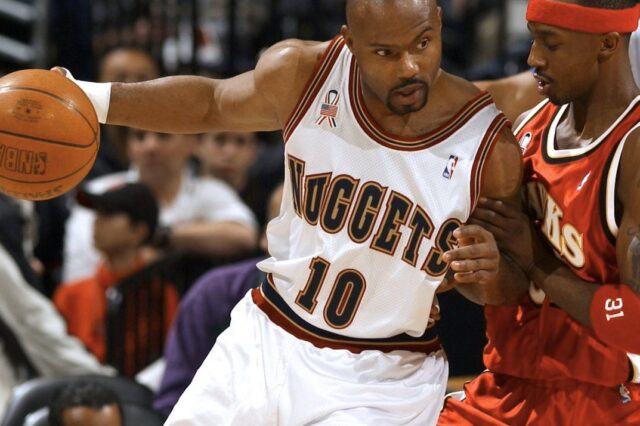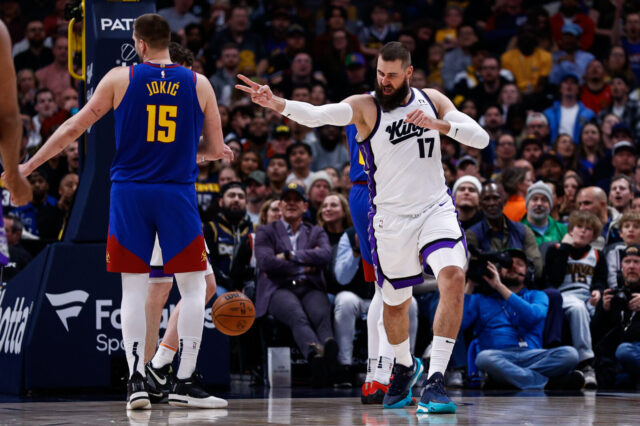By not solving their own internal revenue-sharing problems before hammering their players on a new collective bargaining agreement, NBA owners made the 2011 lockout an unnecessary inevitability.
These are the facts (as I see them)…
1) Small market NBA franchises lose too much money.
2) NBA players – on average – make way too much money and have too much security in their contracts.
3) NBA fans are paying an unreasonable amount for tickets to partially subsidize player contracts and franchise losses.
Back in January, I addressed No. 1 above by strongly recommending that the NBA adopt a Major League Baseball-style revenue sharing system; a system in which 30% of a franchise’s local revenue gets pooled for all franchises to share equally. Unlike what we see in Major League Baseball, NBA teams share only national and international television and licensing and merchandising rights. All other dollars collected by NBA teams locally – such as tickets, local TV contracts, sponsorship, parking, vending and so forth – are kept by the teams themselves. So while the New York Yankees are forced to share 30% of their monstrous local revenue with all other MLB teams, the Los Angeles Lakers get to keep every nickel of their handsome local revenue, including a collection of TV contracts from markets that span from Las Vegas to all of Southern California to Hawaii. (To put that in perspective, televised Lakers games reach about six to seven times as many people as Nuggets games do – and I haven’t even addressed radio revenue.)
Leading up to Friday's lockout, NBA commissioner David Stern acknowledged the need for an improved revenue-sharing system by saying …
“The goal here has been to make the league profitable and to have a league where all 30 teams can compete.”
If Stern is serious about such a goal, he and the owners sure had a funny way of showing it over the past few months. Rather than participate in a series of fruitless "negotiating" sessions with their players, NBA owners should have spent the entire 2010-11 season negotiating among themselves to resolve their piss-poor revenue-sharing system.
Had they done so, NBA owners would have had a better perspective on what their losses – if any – would have been prior to unwinding an onerous, player-friendly collective bargaining agreement that has given the players too much money and too much security since 1999. For all we know, with an MLB-style revenue-sharing system in place last season, the Nuggets would have broken even in 2010-11 rather than lose $12 million (as reported by Forbes and the Denver Post's Chris Dempsey). Moreover, it's unclear if the Nuggets actually lost $12 million to begin with, thanks to the suspect way professional sports teams go about their accounting.
That being said, a number of different and independent sources have told me that the Nuggets do, in fact, hemorrhage money and have been doing so for years now. And we're not talking a few shekels here, but millions of dollars (whether or not it's really $12 million, I have no idea.)
And from my vantage point it's not hard to see why.
Until very recently, the Nuggets had one of the NBA's highest payrolls going up against modest ticket sales and a modest TV contract (by NBA standards). Throw in a $4 million-a-year head coach, 275 assistant coaches (numbers are approximate), state-of-the-art practice facilities, a private plane, and all the other expenses that go along with running an NBA team, and it's not surprising that a team can win 50 games, four seasons in a row, and be a colossal loser financially.
Now just imagine franchises in cities like Milwaukee, Sacramento, Indianapolis, Minneapolis, Cleveland and others like them where they're not even making the playoffs. Or as my SB Nation colleague Tom Ziller likes to say, "If you want to make money in the NBA, you're better off sucking in L.A. (Clippers) than being excellent in San Antonio." That had to change before any new CBA was drafted, and it wasn't.
When it comes to labor disputes, I usually side with those who create jobs (read: management) and have to take on the greatest financial risks. Sure, players have to work their asses off under the brightest of spotlights to earn their exorbitant paychecks, but sometimes making sure there's enough money in the bank to cover those paychecks can be the greatest pressure of all. Especially in these tough financial times – that most business owners are facing.
But it's hard for me to side with NBA owners on this one when it's so obvious that their current revenue-sharing system is the main reason for their financial woes. Had the owners rectified that issue first, they could have approached the players with credibility knowing that the financial pain to come would be felt by all, especially the owners in the biggest markets. Instead, the owners want the players to give away an increasingly high percentage of basketball related income (BRI) to ensure owner profitability regardless if the owners concoct a reasonable revenue-sharing system or not.
As with many negotiations involving billionaires versus millionaires, the players are out of touch with reality, too. I spoke with two former players last weekend who essentially said the same thing to me, "Why are the owners taking away something they've already given us?" A ludicrous statement, even considering that these players know nothing about contract law. Whether the players like it or not (fair or not) they, like the rest of us, must learn to live with less. They are paid too much, are given too many guaranteed years, and wield too much power over the franchises that draft and develop them. I don't believe the NBA needs to adopt a cutthroat NFL-type system with its players, but the days of the seven-year guaranteed contracts must come to an end – immediately.
The structure of NBA ownership – and the entire world economy for that matter – has changed dramatically since 1999 when the league's current collective bargaining agreement was inked. Back then, many owners were living off the incredible appreciation of their franchise values, having bought into the NBA for tens of millions of dollars in the 1970's or early 1980's only to see their franchise values reach the hundreds of millions just 15-20 years later. So what if you overpaid a player by a few million dollars, the thinking went back then, when you know you've made $250-plus million the day you sell your franchise?
But those days are over.
Many modern day NBA owners bought in at the hundreds of millions of dollars range and will never see the type of franchise value appreciation that their forebears did. This forces them to run their franchises like businesses rather than toys, and yet even they need a system that saves themselves … from themselves. As Denver Stiffs contributor Chantech put it aptly in a recent comment: "[A free agent's] value is determined by the dumbest team." Or put even more simply, as long as the Johan Petros of the NBA world are being handed multi-million contracts, too many players are being grossly overpaid.
And what about the fans in all this? What about the suckers, like me and you, who are willing to shell out thousands of dollars so that the Petros can make millions? At what point do we say "Screw it!" and watch the games at home on giant high-definition televisions for a fraction of what tickets cost (and for not particularly good seats in the first place)?
Perhaps – just perhaps – had the owners considered the fans in all this, they would have led themselves to a proper revenue-sharing system before "negotiating" with their players. Because with a proper revenue-sharing system combined with a realistic and reasonable CBA, the NBA could have made professional basketball more accessible to everyone rather than only to those who can afford to sit in an NBA arena.
But alas, NBA ownership – led by commissioner Stern – has proved to be a house of fools. So concerned are they about the dollars commanded by their players – salaries that the owners themselves foolishly agreed to – that they will shut down the greatest sport in America, coming off one of its greatest seasons and best postseasons, no less.
The losers in all of this, of course, won't be the owners or the players … or even the fans. But rather the thousands of league employees and hospitality workers who depend on the NBA for their source of income. Those who didn't have millions of dollars to stash away in preparing for a prolonged lockout.
And all because NBA owners couldn't create the most simple of revenue-sharing systems in order to get their league-wide finances onto the right track before restructuring player contracts.
The cart was put before the horse, and now we may go NBA-less throughout the remainder of 2011 and beyond.


